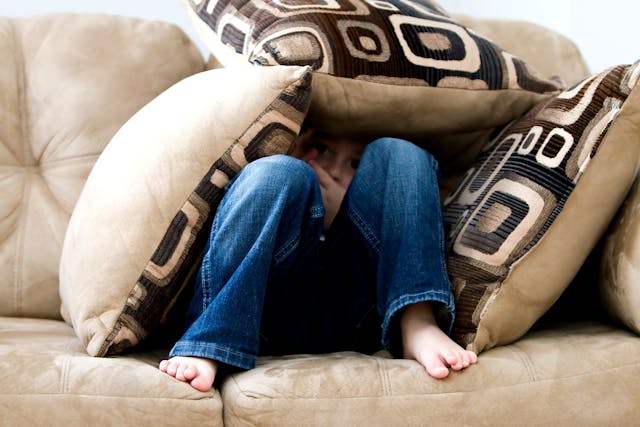
Have you ever stood at a crossroads, unable to make a decision, even though the choices seem clear-cut?
Feeling stuck in a cycle of uncertainty can be frustrating and exhausting.
In this article, we’ll delve into the reasons why we might find ourselves struggling with decisiveness and offer practical tips to break free from this pattern.
Potential causes of indecisiveness
There are several factors that could lead to feelings of indecisiveness. Let’s examine some of the most common ones:
Fear-based
- Fear of failure: The fear of making the wrong choice and experiencing negative consequences can lead to paralysis.
- Fear of missing out (FOMO): Worrying about choosing the “wrong” option and missing out on something better can hinder decision-making.
- Fear of judgment: Concern about what others might think if they make the wrong choice can cause hesitation.
Cognitive factors
- Perfectionism: Striving for an unattainable ideal outcome can make it difficult to ever feel satisfied with any decision.
- Overthinking: Analyzing every detail and possibility can lead to information overload and decision fatigue.
- Black-and-white thinking: Viewing choices as having only good or bad outcomes can make it difficult to find a middle ground.
- Low self-esteem: Lack of confidence in one’s ability to make good choices can contribute to indecisiveness.
Psychological factors
- Anxiety: Generalized anxiety or anxiety disorders can lead to excessive worry and difficulty making decisions under pressure.
- Depression: Low mood and lack of motivation can make it difficult to care enough to make a decision.
- Attention Deficit Hyperactivity Disorder (ADHD): Inattentiveness and impulsivity can make it challenging to weigh options carefully before making a choice.
External factors
- Information overload: Having too much information about potential options can be overwhelming and lead to indecisiveness.
- Lack of clear criteria: Without clear priorities and decision-making rules, choosing becomes more difficult.
- External pressure: Feeling pressured to make a decision quickly or please others can hinder making thoughtful choices.
Other factors
- Life experiences: Traumatic events or negative experiences with decision-making can lead to fear of choosing again.
- Personality traits: Individuals naturally more cautious or introspective might be more prone to indecisiveness.

Negative consequences of indecisiveness
Indecisiveness doesn’t just cause frustration; it can also have detrimental effects on our lives.
Here are some examples:
Personal
- Missed opportunities: Overthinking and hesitation can lead to missing out on valuable opportunities: jobs, relationships, adventures, etc.
- Increased stress and anxiety: The constant internal struggle of weighing options and fearing the wrong choice can lead to significant mental strain.
- Self-doubt and decreased confidence: Repeatedly delaying decisions can reinforce feelings of incompetence and erode self-trust.
- Paralysis and stagnation: Staying stuck in indecision can prevent progress and personal growth.
- Relationship problems: Indecisiveness can strain relationships by creating frustration and resentment in partners, friends, or colleagues.
Professional
- Lower productivity: Difficulty making decisions can hinder completing tasks and meeting deadlines.
- Missed deadlines and opportunities: Delaying choices can create delays in projects and cause missed deadlines.
- Missed promotions or career advancement: Inability to make timely decisions can negatively impact career progression.
- Damage to reputation: A pattern of indecisiveness can create an image of unreliability and hinder collaboration.
- Reduced trust and credibility: Colleagues and clients might lose trust in someone who frequently delays decisions.
Overall
- Reduced quality of life: The constant stress and missed opportunities associated with indecisiveness can negatively impact overall well-being and happiness.
- Financial limitations: Delays in decisions can lead to missed money-saving opportunities or impulsive spending due to pressure.
- Social isolation: Avoiding making choices to avoid potential conflict can lead to social isolation and missed connections.
- Physical health impacts: Chronic stress and anxiety caused by indecisiveness can manifest in physical symptoms like headaches, sleep problems, and digestive issues.

How to overcome indecisiveness
Dealing with indecisiveness is a common challenge, but adopting specific strategies can significantly reduce its impact on our day-to-day activities.
Here are practical steps to consider:
Identify the root cause
Understanding the underlying reasons for indecisiveness is crucial.
Is it fear, perfectionism, lack of confidence, information overload, or perhaps an underlying anxiety?
Pinpointing the root cause allows you to address the issue at its source, making it easier to navigate decision-making.
Break down big decisions into smaller parts
Large decisions often seem daunting because they encompass various aspects.
To make them more manageable, break them down into smaller, more digestible pieces.
This approach simplifies the decision-making process and enables you to focus on one aspect at a time.
Set realistic expectations
Unrealistic standards can contribute to indecisiveness by fostering perfectionism and overthinking.
Instead, set achievable goals and embrace the idea of progress rather than striving for unattainable perfection.
This shift in mindset can alleviate pressure and make decisions seem less overwhelming.
Seek advice from trusted sources
Consulting with someone whose opinion you value can provide valuable perspectives during challenging decision-making moments.
However, it’s essential to carefully consider their suggestions and weigh them against your own instincts before arriving at a final decision.
Practice mindfulness
Mindfulness techniques, such as deep breathing exercises and meditation, can be effective in reducing stress and promoting mental clarity.
These practices create a calm and focused state of mind, enabling individuals to make decisions more confidently and with greater clarity.
Develop a plan of action
After making a decision, create a detailed plan of action.
This tangible strategy not only provides a roadmap for implementation but also helps alleviate doubts and boosts confidence in the chosen path.
Learn from past mistakes
Reflect on previous decisions to identify patterns and areas for improvement.
This self-awareness allows you to learn from past mistakes, refining your decision-making process and ultimately becoming a more adept decision maker.

Common Misconceptions About Indecisiveness
There are several common misconceptions about indecisiveness that can lead to misunderstandings and negative perceptions.
Let’s explore some of these misconceptions:
Indecisiveness is a sign of weakness
This is a common misconception that can lead to negative judgments about individuals who struggle with decision-making.
However, indecisiveness is a common experience shared by many people and is not necessarily a sign of weakness.
Indecisiveness is always a bad thing
While indecisiveness can have negative consequences, such as missed opportunities and increased stress, recent research suggests that it can also have an upside.
Indecision can protect us from common cognitive errors like confirmation bias, leading to wiser decisions in the long run.
Indecisiveness is a personality trait
While some individuals may be more prone to indecisiveness due to genetics, environment, or life experiences, it is not a fixed personality trait.
Indecisiveness can be influenced by various factors, including fear, perfectionism, lack of confidence, and anxiety.

Conclusion
Experiencing indecisiveness is a common part of being human and can impact anyone.
Yet, by acknowledging the underlying reasons and employing effective coping mechanisms, individuals can reclaim their ability to make confident decisions.
It’s important to recognize that every mistake serves as a chance for personal growth and learning, ultimately empowering us to evolve into more resilient and discerning decision-makers.
FAQs
If indecisiveness causes major stress, missed opportunities, or relationship problems, seeking professional help from a therapist or counselor can be beneficial.
Unfortunately, there’s no magic bullet. Overcoming indecisiveness takes time and consistent effort. However, various strategies and resources can support you on your journey.
Set time limits for yourself to weigh options. Remember, perfect options rarely exist, and sometimes good enough is good enough!
Yes, everyone experiences indecisiveness occasionally. However, if it becomes chronic and significantly affects your life, it’s important to address it.
Individuals who are naturally cautious, introspective, or perfectionistic might be more prone to indecisiveness. However, anyone can learn to manage it effectively.


